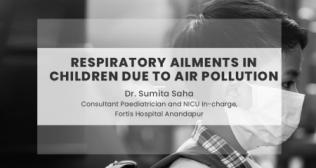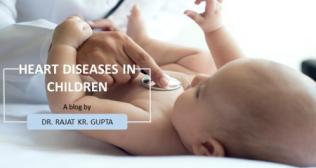
Heart disease in a child - Fortis Escorts Heart Institute
Does your child struggle with feeding?
If your child finds it challenging to consume feeds in one go, particularly accompanied by sweating, it's a crucial early sign to pay attention to. They might sweat during feeds and pause after only a small intake. Feeding difficulty is indicated when the child can't nurse continuously for five minutes and becomes breathless during feeds. Even after feeding, if the child remains hungry and cries every half to one hour, it's a concern.
Does your child experience recurrent chest infections?
Children with congenital heart disease may suffer from frequent chest infections due to increased blood flow to the lungs. It's important to note that upper respiratory infections like the common cold or mild cough are unrelated to heart disease. Chest infections typically present with fever, rapid breathing, chest retractions, and often require antibiotics and nebulisations for recovery.
Is your child struggling to gain weight satisfactorily?
Children with congenital heart disease often have poor feeding and appetite, leading to inadequate weight gain.
Is your child unable to keep up with peers during playtime?
If your child easily tires out and experiences breathlessness while playing with friends of the same age group, it could signal that their heart struggles to meet the demands of exertion and competitive activities, necessitating evaluation by a cardiac specialist.
Does your child exhibit a bluish discolouration?
Bluish skin or tongue discolouration is a significant indicator of heart disease. Some children prone to "Cyanotic spells" may experience increased breathing rate and depth, intensified blueness upon stimulation, potentially leading to limpness, convulsions, or unconsciousness. Immediate consultation with a paediatric cardiologist is essential in such cases.
Is your child frequently complaining of palpitations?
If your child frequently complains of palpitations, seeking advice from a paediatric cardiologist is crucial, as it could signify abnormal heart rhythms.
What should parents do?
If any of the aforementioned symptoms are observed, consulting a local doctor or paediatrician is advisable. If the doctor suspects any underlying issues, they may refer to a paediatric cardiologist for expert opinion. It's important to remember that most heart conditions in children are treatable if identified early, with a nearly 100% cure rate, so there's no need to panic. Additionally, these symptoms may not exclusively indicate heart disease but warrant evaluation. Vigilance is key.
Categories
Clear allMeet the doctor

- Paediatrics | Paediatric Cardiac Sciences
-
20 Years
-
1500

















